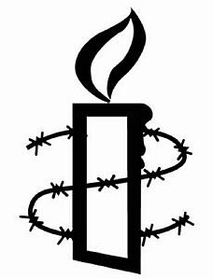


Posted by AFP on



Amnesty International on Tuesday criticised major failings in Nigeria's criminal justice system and called on the government to immediately put in place a moratorium on capital punishment.
Amnesty International on Tuesday criticised major failings in Nigeria's criminal justice system and called on the government to immediately put in place a moratorium on capital punishment.
"While we wait for the total abolition, we call on the authorities... to immediately declare a moratorium on executions and to commute all death sentences to prison sentences," the UK-based global rights watchdog said in a 74-page report.
The report, presented in the federal capital Abuja, was drawn up in conjunction with a Nigerian rights group, the Legal Defence and Assistance Project (LEDAP).
Amnesty and LEDAP are pushing for detainees who cannot afford a lawyer to be given better access to judicial services.
The two groups are also calling for confessions obtained under torture to no longer be admissible in court.
In February, Nigeria -- the most populous country in Africa with 140 million people -- had 725 men and 11 women on death row.
One of the men has been on death row for 24 years and 35 of the others for more than 15 years.
The majority of death row prisoners are aged between 20 and 40 and at least 40 of them were under 18 years old at the time of their alleged crimes.
The Nigerian police who, according to the report, are "over-stretched and under-resourced" find encouraging or forcing prisoners to confess cheaper and easier than carrying out full-scale investigations.
"Under Nigerian law, if a suspect confesses under pressure, threat or torture, it cannot be used as evidence in court," said Chino Obiagwu, LEDAP's national coordinator.
"Judges know that there is widespread torture by the police and yet they continue to sentence suspects to death based on these confessions, leading to many possibly innocent people being sentenced to death."
The report noted that half of those sentenced to death were condemned on the basis of confessions.
Moreover, despite assurances from the Nigerian authorities that no executions have taken place over the past few years, "in reality at least seven were carried out in 2006," LEDAP and Amnesty said, slamming the secrecy that surrounded them.
According to the report "at least 22" executions were carried out between May 1999 and 2008, "maybe more".

